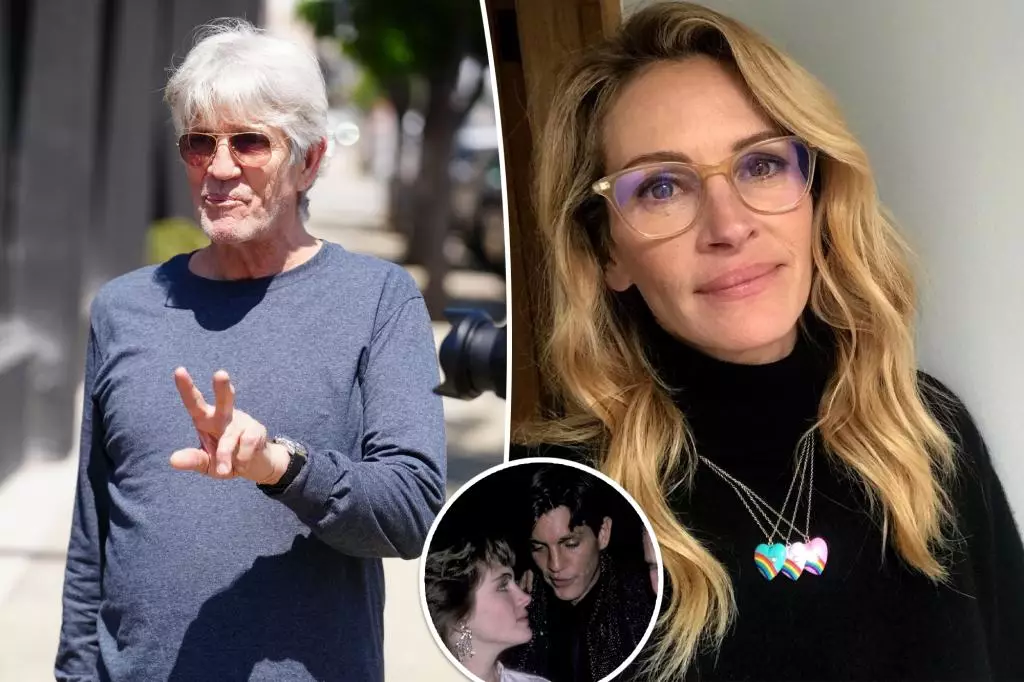In the fascinating world of Hollywood, familial relationships often have as much complexity as the roles actors portray on screen. One such relationship is that of Eric Roberts, an accomplished actor in his own right and the older brother of the iconic Julia Roberts. This past week, Eric made headlines by publicly apologizing for taking too much credit for Julia’s illustrious career, an admission that reveals much about his own struggles and aspirations.
In his upcoming memoir, “Runaway Train: Or the Story of My Life So Far,” Eric expresses regret over his previous comments claiming responsibility for his sister’s success. “I hope Julia will accept this public apology. It was an asinine thing to have said,” he writes, illustrating a moment of reflection that seems long overdue. His previous remarks, including a bold assertion to Vanity Fair in 2018 that without him, “there would be no Julia Roberts,” have stirred controversy and concern within the industry and among fans of both actors.
His claims over the years indicate a desire for recognition, but they also hint at insecurity regarding his legacy in a field where he has often been overshadowed by Julia’s monumental achievements. Eric’s comment about being “first” to receive accolades in the family, including Golden Globe and Academy Award nominations, underscores a recurrent need to affirm his place within the family and industry hierarchy.
Understanding Eric’s psyche requires an exploration of his turbulent past, specifically his struggles with addiction. Eric moved to New York at 17, full of dreams but also carrying the weight of the pressures that come with fame. He experienced significant success early on, but his bout with cocaine dependency soon spiraled into a personal crisis. Losing custody of his daughter, Emma Roberts, marked one of the lowest points in his life, and he candidly describes it as the “biggest consequence” of his addiction.
The emotional turmoil didn’t just impact him; it permeated his relationships with his sisters Julia and Lisa. Eric contemplates the psychological scars left on his family from his past struggles, saying, “I wouldn’t be surprised if they suffered from PTSD from when it was dangerous to be around me.”
Such reflections indicate a depth of self-awareness that can be both captivating and tragic. Eric’s journey towards self-recovery seems to be ongoing, intertwined with his attempts to reconnect with family members he alienated during his darker years.
Eric’s relationship with Julia, while fraught with tension at times, has elements of love and admiration. Recent interviews suggest a drive towards reconciliation. “My sister and I, though, we’ve always talked, we’ve always bitched,” he explains, hinting at a normalcy that exists beneath the surface disagreements. The dynamic appears to have evolved, with Eric expressing pride in Julia’s accomplishments and a desire to step back and allow her to shine in the limelight.
Furthermore, he openly professes admiration for Emma’s work, calling her a source of pride that fills him with joy. This speaks volumes about his willingness to embrace his role as a supportive figure, as opposed to attempting to dominate the narrative surrounding the family’s accomplishments. Strikingly, he continues to manage a complicated balance between familial pride and personal identity.
In reflecting upon his role in his family’s fame, Eric articulates an aspiration to move aside gracefully. This idea of allowing his sister and daughter to lead while he supports from behind is poignant and speaks to the universal themes of pride, humility, and the complexities of familial ties. His memoir, “Runaway Train,” serves not only as a literary undertaking but also as a platform for public acknowledgment of his past missteps and the hope for a brighter, more united family future.
As “Runaway Train” hits the shelves, Eric Roberts has enriched the conversation surrounding celebrity, responsibility, and the intricate web of relationships that define personal and professional lives. By owning up to his past and exhibiting a renewed respect for his sister’s achievements, he offers invaluable lessons about accountability, humility, and love in the dose of fame’s sweetness and bitterness.

Leave a Reply